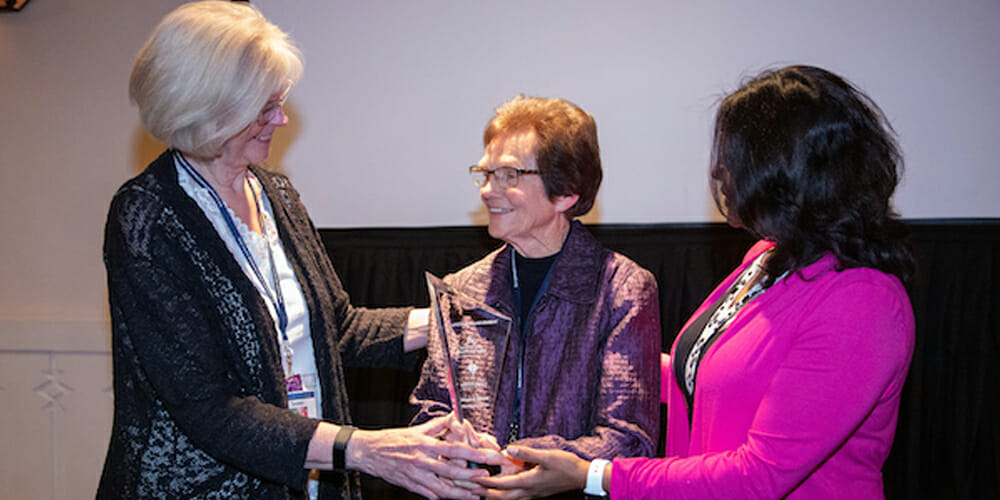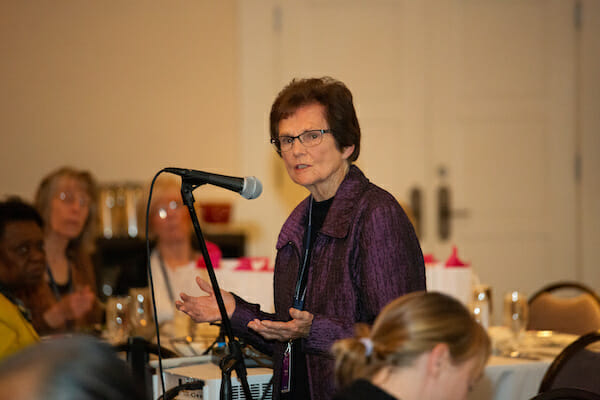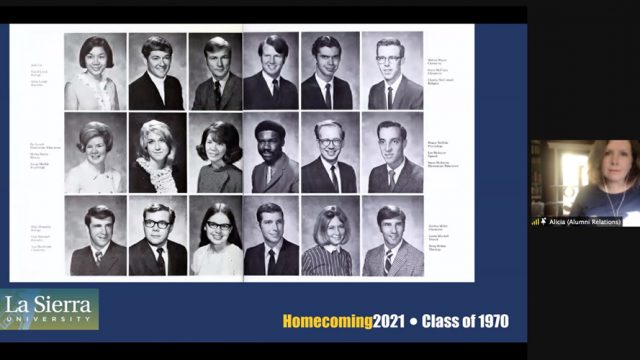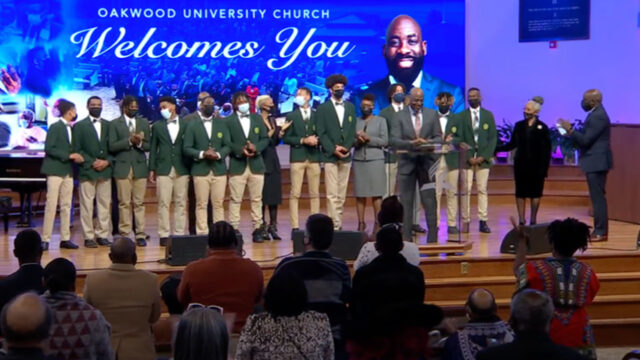Banquet ceremony honors pioneer of the Adventist Association of Faith Community Nursing.

The practice of faith community nursing in the Adventist Church was celebrated during the banquet ceremony of the 2019 North American Division (NAD) Health Summit in Albuquerque, New Mexico. Leaders and members of the Adventist Association of Faith Community Nursing (AAFCN), along with nurses who received specialized training during the summit to become a faith community nurse, attended the banquet on January 24, 2019.
“We are grateful for the heritage of health and healing that we have in the Seventh-day Adventist Church, and I believe the time has come [for us to] be much more deliberate and intentional about merging our evangelism with our health message,” said AAFCN president Teresa Nelson.

In the context of the Adventist Church, “the faith community nurse is a member of the [local church] staff and works in conjunction with clergy and the congregation and provides an opportunity for the transformation of the faith community and the sources of health and healing,” said AAFCN historian Maria Middlestate.
During the event, Middlestate gave an overview of faith community nursing within the denomination. The AAFCN was officially formed in 2013 with the election of board members. The association’s 21 inaugural members met for the first time at the 2014 NAD Health Summit in Orlando, Florida, United States. The association has been steadily growing ever since.
“Servant Leadership in Its Fullest”
Middlestate also shared the contributions of Bernice Deshay, who was instrumental in launching a parish nursing program at Washington Adventist University and forming a partnership with Adventist HealthCare, which sponsored the banquet. However, special emphasis was placed on the evening’s 90-year-old guest of honor, Maxine Bloom, whom the association recognizes as its leader.
“It’s wonderful to get [recognized] for something you that love doing. The Lord is good. I believe in it, I believe in health. I’m going to keep walking and keep teaching,” Bloom said, after accepting a lifetime achievement award from NAD Health Ministries.
After receiving training in the practice of parish nursing in 1994, Bloom brought her knowledge to her workplace at Adventist Health in Roseville, California. She created a how-to booklet to help educate ministers on faith community nursing, spoke at ministerial meetings, and fostered a partnership with local churches.
“When I first took this program, it didn’t take me long to realize that this was servant leadership in its fullest and this is what Seventh-day Adventists believe in. The whole program just was so exciting when I took it,” Bloom said.
Bloom retired from her position the same year but agreed to help Adventist Health manage the 12 hospitals in its network with parish nursing programs. She served in the part-time capacity for 10 years.
“Her dream was to have all Seventh-day Adventist churches have a parish nurse for their members,” Middlestate said. “It is still Maxine’s vision that each nurse experience the rewarding, spiritual connection this relationship fosters; and that every hospital patient have an advocate to assist in the unknown and overwhelming world of medical care.”
The Need for Partnerships
An underlying theme of the banquet was the importance of pastoral support and how vital is it for the association’s aim to have a faith community nurse in every church.
Anthony A. Medley, senior pastor at Emmanuel-Brinklow Seventh-day Adventist Church in Ashton, Maryland, United States, said, “I must confess, when I became senior pastor at Emmanuel-Brinklow 10 years ago, I did not know an awful lot about faith community nurses. I had heard about parish nursing because I’m married to a nurse … but I did not fully understand the benefits of having a faith community nurse on your pastoral staff.”
Medley, who also serves as the pastoral liaison for AAFCN, said if he were called to another church, he would ensure that a faith community nurse would be part of his team. “I’ve grown not only to appreciate what faith community nursing is, but I’m also at a place where I’m challenging and encouraging my colleagues in ministry to see the faith community nurse as the anchor to help churches, congregations, and community to fulfill the wholistic gospel message that God has uniquely given to the Seventh-day Adventist Church.”
NAD Health Ministries director Angeline David serves as the executive director of AAFCN, and she said that she believes in the unique role faith community nurses play in fulfilling the gospel commission.
“It is an honor for me, though I am not a nurse … to be able to work with these amazing nurses and those who value them, and [those who] recognize how important they are to the work in the church and the work of the church,” David said.
David also announced a new partnership with the General Conference information systems department that is poised to help expand the Church’s faith community nursing network.
“I have made it one of our primary goals of the NAD Health Ministries to strengthen and develop where needed a stronger network and networking capabilities,” David said. “We are looking at avenues of using technology to connect us. Our goal is to make it accessible, user-friendly, functional, and help you achieve what you want to achieve where God has placed you.”
The original version of this story was posted on the North American Division news site.








